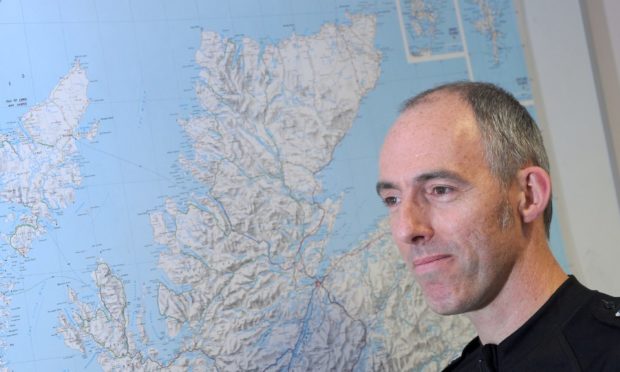The north-east’s top police officer has warned serious organised crime groups are “very much back to normal” after their troubles through the early part of lockdown forced them to offer a mail-order service.
Dealers had been forced to innovate throughout late March and early April, turning to posting their illegal product across the country instead of taking to the near empty roads.
New north-east Chief Superintendent George Macdonald briefed Aberdeen councillors on the impact of the pandemic on crime this week.
But he warned organised criminals had returned to business as usual since the country’s governments had relaxed lockdown restrictions.
Asked if the pandemic changed anything in the fight to rid the north-east of serious crime, Ch Supt Macdonald said that was “very evident”.
“We all witnessed a lack of traffic on the roads, so the perhaps conventional means of distribution of controlled drugs was disrupted as it was very difficult,” he said.
“But, as always with serious organised crime, innovation took hold.
“We certainly saw, for example, the use of the postal service far increased in relation to the first six to eight weeks.
“It’s fair to say since early May many of the methods that were previously understood and recognised very much returned and the postal service was less used.”
He added: “Organised crime has continued, though perhaps it was slightly curtailed by the lockdown measures.
“But the reality is since those have been tapered it has very much returned to normal and so we have returned to normal in how we address that.”
Previously the head of the Scottish Government drugs task force, Professor Catriona Matheson, reported innovative dealers turning to the internet to push their wares after a dip in supply at the outset of the pandemic.
The substance use professor, based at Stirling University, warned the move online had vastly increased the convenience of buying illegal goods.
Prof Matheson said: “We know more people get drugs through the post now, through various deliveries.
“You can access illegal drugs very quickly and very easily and get them delivered to your door through online access.
“Sites get taken down quickly once they are identified but they just keep moving around and change their name.”
Last year a top detective with Merseyside Police compared drugs criminals to Oliver Twist’s Fagin – as they used blackmail and extortion to force vulnerable people to act as drugs mules travelling to the north-east.
Over the last few years, there have been increasing reports of gangs from north-west England flooding the area with illegal substances.
Councillors will hear an update on efforts to halt these ‘county lines’ operations – so-called in reference to the single phone number used to remotely sell drugs – in December.
Ch Supt Macdonald’s next appearance at the public protection committee will also address work to tackle ‘cuckooing’, when gangs take over the homes of the vulnerable to use them as a base of operations.
